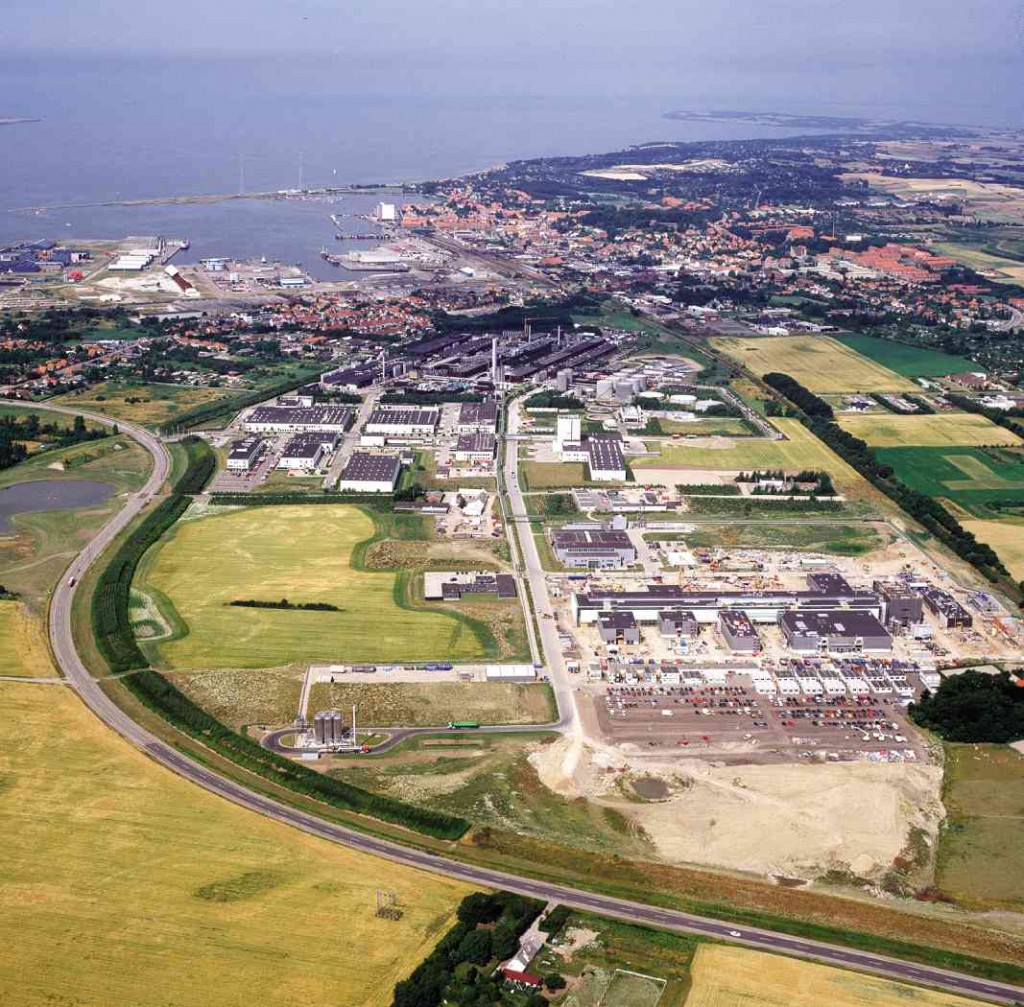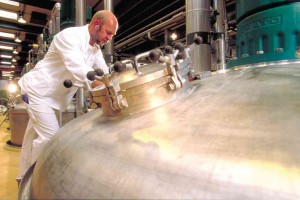Diabetes care leader never compromises on quality
A guided tour of the Danish production facilities in Kalundborg—the world’s largest sustainable insulin factory—was arranged for approximately 50 journalists from 21 IO countries. Represented in the IO press visit were Algeria, Argentina, Bangladesh, Brazil, Chile, Columbia, Egypt, India, Indonesia, Iran, Iraq, Malaysia, Mexico, Peru, Philippines, Russia, Saudi Arabia, Turkey, Ukraine, Venezuela and Qatar.
During the guided tour, this writer was very impressed by the way diabetes care leader Novo Nordisk is concerned about contamination of its facilities.
As proof, the foreign journalists including this writer were asked to wear special covers for clothes and shoes. Mobile phones, tablets, other electronic devices and lighters were not allowed for product quality reasons. Ethanol is being used on the production processes so for safety reasons, electronic devices were not allowed in the production areas.
Main control centers
Aside from the main building, there is a fermentation building. Nine side buildings service the product underway in the process. Providing good visual contact and overall survey are the many glass walls.
Production is controlled from the heart of the plant—the main control centers—two stories high.
The control system monitors each batch and gathers extensive quality data to generate a batch report for each processing area. The open production halls that radiate from the main control centers provide a good overview of the production plant.
The plant tour guides were able to explain the production process at Kalundborg. Before the plant tour, site chief Jan Hoff briefed the journalists on the Novo Nordisk Product Supply site Kalundborg. He presented insulin production at a glance—from the yeast to the insulin crystal.
Hoff enumerated the insulin manufacturing process: fermentation, recovery, purification (crystalization and drying).
Functional area
Product Supply is the functional area where manufacturing at Novo Nordisk belongs. Its mission is to be the best supplier of pharmaceutical products. In other words, Product Supply has to supply customers with high-quality products in regulatory compliance, with reliable delivery and at competitive cost.
It should ensure that its high-quality products are available when customers need them. There are three objectives that manufacturing focuses on: getting the quality level of product’s right quality; meeting the increasing global demand for its products; and continuously challenge the way employees work and thereby reducing their cost to make it possible for them to invest in the future.
The people in Product Supply are striving for excellence in all their functional areas including sourcing, manufacturing and quality assurance. This allows them to to live up to their primary responsibility of supplying all products sold by Novo Nordisk.
Introducing cLEAN
These people make their production processes more stable to be environmentally sound and to be a fair and responsible partner. They strive to lower the cost of goods sold by introducing cLEAN, its version of the LEAN philosophy, to make production processes stable and efficient by eliminating waste.
It was 2004 that LEAN was introduced to optimize production and environmental impact. cLEAN department with approximately 550 employees is responsible for aseptic and finished production of diabetes products. It is also continuously developing and deploying the LEAN mindset and methods to solve business challenges across site Kalundborg (SDK).
In Product Supply, what counts are quality, delivery and cost.
Novo Nordisk vice president for corporate sustainability Susanne Stormer said the company has been serving the unmet medical needs of people with diabetes. She described insulin as a gift to humanity and the founders provide insulin to those who needed it.
Triple Bottom Line
Stormer, who has been with the company for 19 years, said: “We at Novo Nordisk believe that a healthy economy, environment and society is fundamental to long-term business success. This is why we manage our business in accordance with the Triple Bottom Line (TBL) business principle and pursue business solutions that maximize value to our stakeholders as well as shareholders.”
According to Stormer, the TBL business principle is anchored in the Novo Nordisk way and in the company’s Articles of Association (by-laws) that state that Novo Nordisk “strives to conduct its activities in a financially, environmentally and socially responsible way.” It went beyond the financial value (profits, return on investments and shareholder value) to include the environmental and social dimensions.
She said the company was environmentally responsible in the face of growth, producing more with less. Its socially responsible business development raises the employees’ know-how to improve lives. This later on leads to preventing diabetes in future generations.
Novo Nordisk addresses its environmental responsibilities by employing COWI to help implement energy-saving measures at its factories in Kalundborg. These facilities emit 50 percent of the company’s total global emission of carbon dioxide. The company contributes its nutrient-rich effluent to neighboring farms.
















